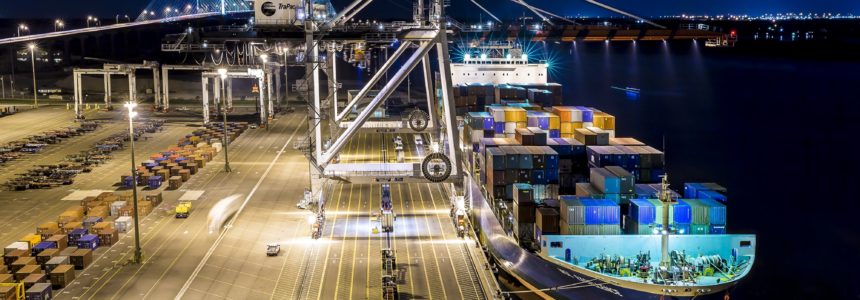News & Updates
Port leaders gather for FSTED Council and Committee meetings in Jacksonville

Members of the Florida Seaport Transportation and Economic Development (FSTED) Council, FSTED Security Committee, and Seaport Environmental Management Committee (SEMC) will hold public meetings in Jacksonville on Tuesday, August 27th and Wednesday, August 28th. These meetings are staffed by the Florida Ports Council, the professional association providing leadership for Florida’s 15 public seaports through a collective voice in the areas of data and research, state and federal advocacy, and marketing and communications.
Details for the Council and Committee meetings can be found on our calendar and events page.

The FSTED Council is a state and local investment entity created by statute and charged with supporting the state’s economic development mission of implementing seaport capital improvement projects. While Florida’s ports are independently governed and operated, in 1990 the Legislature created Chapter 311, Florida Statutes authorizing the FSTED Program, which established a collaborative relationship between the Florida Ports Council, the Florida Department of Transportation (FDOT), the Florida Department of Economic Opportunity (FDEO) and Florida’s 15 public seaports. The FSTED Council annually solicits and approves project applications submitted by each of the individual seaports. Florida’s local government seaports work in partnership with FDOT and FDEO ensure that projects selected for financing under the FSTED Program meet specified statutory criteria.
Seaport Environmental Management Committee (SEMC)
The Florida Seaport Environmental Management Committee (SEMC) is a forum utilized for ports to discuss environmental issues and policies, environmental mitigation, air and water quality permitting, and the maintenance of navigation channels, port harbors, turning basins, harbor berths, and associated facilities.
Security Committee
The FSTED Security Committee is a forum for discussion of seaport security issues, including, but not limited to, matters such as national and state security strategy and policy, actions required to meet current and future security threats, statewide cooperation on security issues, and security concerns of the state’s maritime industry.
